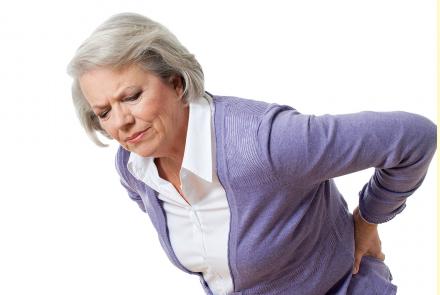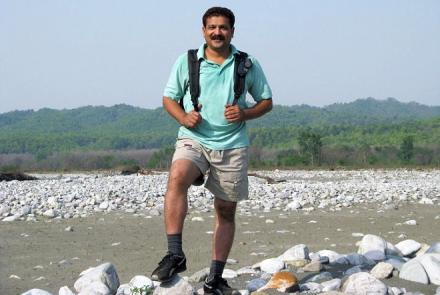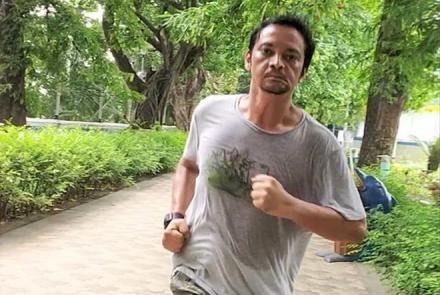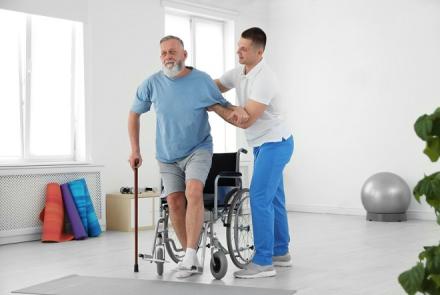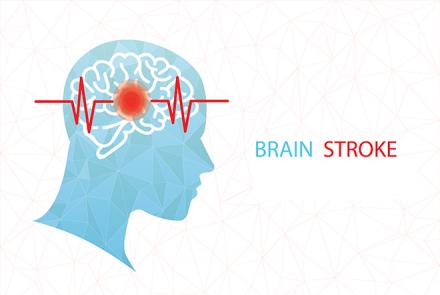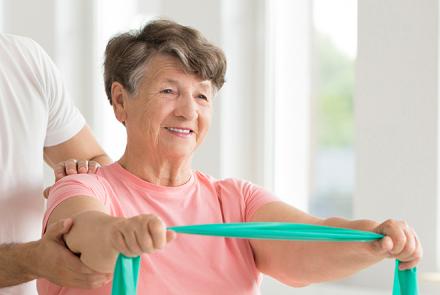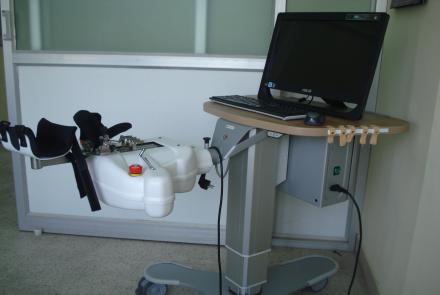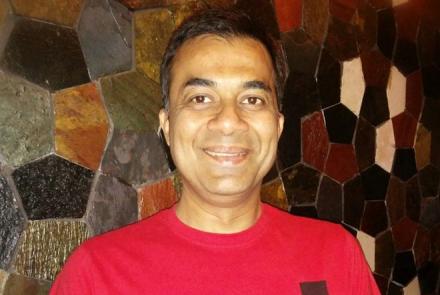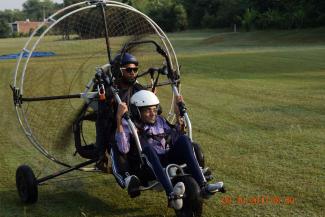
Spinal cord injury, stroke and osteoporosis are common causes of disability. The Chandigarh Spinal Rehab centre offers holistic rehabilitation to empower patients and enable independent living.
For what conditions or disabilities does the Centre have Rehabilitation facilities?
- Spinal Cord Injury
- Traumatic brain injury
- Stroke
- Multiple Sclerosis
- Cerebral Palsy
- Children with special needs
- Geriatric Rehabilitation
- Post Joint Replacement Therapy
- Spina Bfida
- Pain Management
- Other Neuro Conditions
What is spine rehabilitation?
Spine rehabilitation is a broad topic which involves -
- Finding the root cause of pain/discomfort
- Relieve pain through various means of treatment
- Rebuilding strength and endurance
- Help address complications arising due to the primary cause
- Motivation and improve mental health
- Help rediscover a higher quality of life
- Vocational Rehabilitation
- Independence in activities of daily living
Which are the common spinal disorders and diseases?
- Spinal cord injury (SCI)
- Scoliosis/Kyphosis
- Spondylosis/ Spondylolisthesis
- Spinal tumours
- Spinal Stenosis
- Spinal infections
- Spinal muscular atrophy
Spinal cord injuries lead to serious disability and loss of independence. What are the psychological aspects of spine rehabilitation?
After spinal cord injury, there are many psychological aspects which a person faces like-
- Depression
- Post-traumatic stress disorder
- Anxiety
- Suicidal thinking or lack of desire to live
- Inability to provide self-care and dependency on others
- Marital and relationship conflict
- Lack of motivation for vocational or educational pursuit
- Social Isolation
- Low self-esteem
- Anger and aggression
- Feelings of helplessness and hopelessness
Hence spinal rehabilitation should not be just limited to physical rehabilitation but also psychological and emotional counselling.
How do you manage the mental health aspects of the person? What types of programs do you have to address cognitive problems?
As we said earlier, it's true that spinal cord injuries affect mental health of a person. It doesn't affect cognition unless there is brain injury associated with it.
Mental health aspects are taken care by regular counselling, providing them a friendly atmosphere during their rehabilitation, peer mentors and peer trainers play a major role to help them come out of the cocoon, organising various events to cheer everyone, organising outings to several places so as to break the community stigma (which comes with wheelchair), regular yoga sessions, and lastly by making them independent according to their level of injury.
Our strength is in the partnerships we build within the health & wellness ecosystem; to better address patient & care seeker needs, optimize costs & build value for all stakeholders.
How do you know when you have spinal problem?
Back pain is the most frequently found problem in adults.
Don’t make assumptions or rush to conclusions. Back pain can be present without the existence of any damage or injury to the spine itself. You should consult a physiotherapist or spine doctor to get the best treatment.
Depending on the underlying condition causing your neck or lower back pain, a variety of other associated symptoms may present themselves. If the issue originates in the spine, symptoms may include:
- Pain that extends from low back into the buttocks and legs or from neck to arms and hands.
- Numbness and tingling (in the hands and feet)
- Pain that is worse while doing any activity
- Weakness or balance problems
Contact doctor immediately if any of these symptoms occur.
Is there anyway to heal the spine naturally?
Spine heals naturally when given appropriate rest and treatment incase of mild disc bulge or swelling around the spinal cord. But if the spinal cord is damaged, it does not have the property to heal by itself.
What are some complementary approaches for treating spinal cord injuries?
- Stem cell therapy
- Robotics for arms and exoskeletons
- Functional electrical Stimulation
- Virtual reality
- Acupuncture
What are the challenges in stroke rehabilitation?
The challenges faced by an individual post stroke during rehabilitation are -
- Cognitive and behavioural issues
- Perception issues
- Visual and auditory issues
- Speech and swallow difficulty
- Respiratory issues
- Sensorimotor issues
- Balance and gait problem
- Difficulty in performing activities of daily living.
The above factors vary according to an individual's site/part of the brain affected and the extent of affection.
What are the recent paradigm shifts in stroke rehabilitation?
- Repetitive transcranial magnetic stimulation
- Brain-computer interfaces
- Deep brain stimulation
- Exoskeletons
- Robotics for upper limbs and lower limbs
- Hyperbaric oxygen therapy
- Virtual reality
- Emg biofeedback
- Body weight supported gait training
- Constrained induced movement therapy
What are the challenges faced in geriatric rehabilitation?
- Reduced strength and endurance
- Decreased bone quality
- To prevent falls
- Mental health counselling
What programs are there for children with special needs?
- Therapy via sensory integration/ neuro developmental techniques
- Special educators
- Counselling
- Assistive software devices
About 80% of individuals with chronic spinal cord injury have either osteopenia or osteoporosis. What are the non-pharmacologic treatment options for osteoporosis?
- Adequate nutrition especially Vitamin D and calcium
- Weight bearing on the joints
- Regular Stretching
- Regular passive/active movements
- Therapeutic / functional standing
What is the average annual incidence of Spinal Cord Injury reported in India?
About 20,000 new cases are added on every year.
On the Chandigarh Spinal Rehab website, there are many pictures of patients in different locations. Is travel a part of the rehabilitation program?
Yes… we have made it a part of the rehabilitation program. We have taken them to the beach in Chennai. We’ve gone to Puducherry. I took them scuba diving in the deep seas. They should live life of possibilities. We travel every year, except for the Covid year when we went nearby Kausali. Before that, we had gone camping to Mashobra. We have done all kinds of things which people say cannot be done by persons with disability. People look at me in disbelief when I tell them that I have also organised an event of para-motoring (pic above). When a person on a wheelchair goes up to open skies, the experience is exhilarating. Imagine how beautiful these experiences are for person who thinks his/her life is so confined, so limited. And then he gets to experience being in the open sky. It opens up your limited belief pattern. That’s how it changes their life. It gives them the confidence that nothing is impossible. We can also have fun, we can also travel. We are not supposed to be bedridden in some corner of the house. At our Centre, we consider ourselves fortunate to give them the opportunity to live life differently – said Nicky P Kaur, Founder and CEO.
What is the best way to empower a patient with acute disability like spinal cord injury/traumatic brain injury?
- To make him/her independent in daily activities
- To help rediscover meaning of life
- To provide vocational rehabilitation
The responses have been provided by the team of Chandigarh Spinal Rehab Centre.
The pictures in the montage below and the image above have been shared by Chandigarh Spinal Rehab Centre

